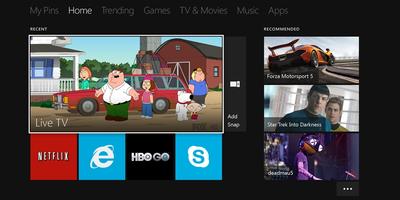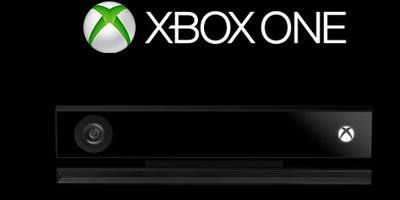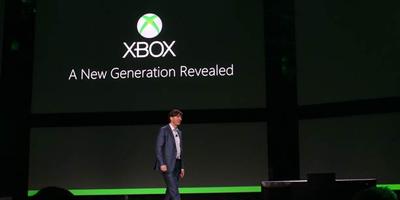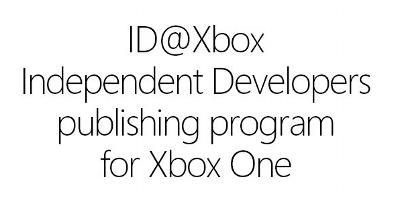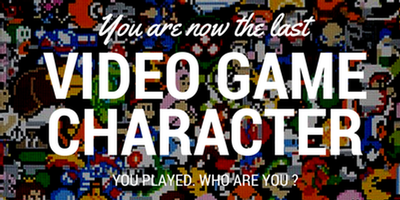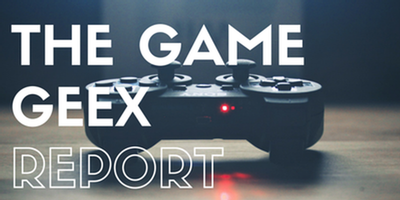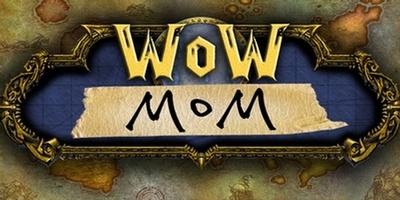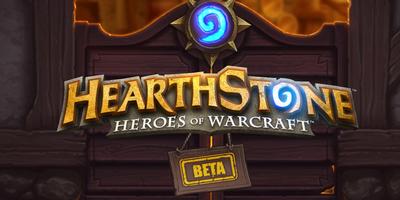- by Ken "Chaobo" Serra
- Posted on June 20, 2013 @ 4:00 PST
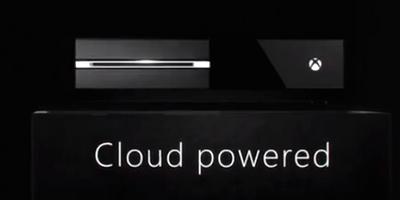
So it's official: Microsoft has announced they are removing their much-hated DRM policies and with it, their hopeful future for a digitally-distributed console world. Now down the line this could be something they could revoke, again, but let's leave it as gone for everyone's sake. But what I don't understand is... Why? Because of a bunch of Internet whiners that want it their way, oh and their friend's ways... Oh, and their favorite forum's ways? Facebook's way? Sony's way? Did I forget anything..?
See this is upsetting to me, because I wanted to think about this in the long-term. But first, let's break down why Microsoft had this "plan" in the first place:
1) Games will ALWAYS be installed on the hard drive. Physical copies are a way for you to install to the drive.
2) Discs are merely just another method of hard drive installation.
- How do we know if the game was stolen or not? 24-hour check-in.
"I hate when Microsoft assumes we're all criminals.."
Bull, *******, ****. Do you know how many people would download their game on more than one device? Like everyone? Because of the way XBO games will be handled, they unleashed upon the world the "always online" controversy. Really, there isn't another way out of this unless you want groups of people to only need to purchase the game once so they can gladly download the title on every Xbox One in the neighborhood. Just because you don't, doesn't mean 85% of everyone else won't either.
After a long hard battle, where forum trolls and memes entered the frontline, they remove the need for any of the above mentioned. At what cost however?
These changes will impact some of the scenarios we previously announced for Xbox One. The sharing of games will work as it does today, you will simply share the disc. Downloaded titles cannot be shared or resold. Also, similar to today, playing disc based games will require that the disc be in the tray.
Microsoft's Vision for the future
This is something I always bring up when talking about the Xbox One. It all seems unappealing now since with these policies, they cut off a good chunk of their potential consumer-base:
- Those that can't have Internet
- Those who are in regions that don't have access to Microsoft Azure servers
The latter, is an understandable complaint: bad move Microsoft, bad move. The former.... Go buy something else, I think there's a PS4 waiting next door for you.
Yea, I'm harsh, and yes, that alienates a portion of their consumer base, but last I checked, Xbox didn't have the gaming device monopoly here. Anyways, back on topic.
First of all, people complained about the sharing of used games. So Microsoft instated the "family plan" and no, birth certificates were not required and yes, "family" = friends, roommates, pets, hairstylist: who ever the heck you want and with it, you could share your game with them at any time with the push of a button because everything is on the Cloud.
"But you can only play your game one at a ti-" JUST STOP.... What's the realistic difference between this service and handing the disc-based game to someone? A bike ride and usage of gas, that's what. The best argument that can be made here is the lack of socializing, but that's for another time.
What else did this take away? The selling of "used" digital games. Yea, now, I can take the disc to Gamestop! Cool. You know what? I could've done that before! Microsoft specifically stated you'll be able to sell your physical copy back to participating-retailer; the publisher has control over what happens here. But basically, I still have access to something I could've done but lost my ability to sell my digital license to someone else, which was a service Microsoft has been hush hush about. Tell me on what planet can you sell digital rights to someone? Not even the all-mighty Steam does that. I guess people just can't embrace change, even if it's the future.
The road to Steam
The whole philosophy behind the new DRM enactment as well as the digital store was to become closer to what Steam is, except on a console device. Microsoft has stated in the past that they will take no money from the sales of used games; no licensing fees, nothing and because of this, a cut goes back to the publisher. Because publishers can ensure that they will get money back from used games, the prices for digital copies might have reduced. Why? Publishers know they don't make money on used game sales, so they charge more to the first buyer. You are paying for others' rights to use your game in the future. If Microsoft kept the old system, perhaps the prices of new games would eventually decrease, or at least not increase.
Some will argue "they've been paying $50 for PC games for decades!" Well if you've been paying the same price for new PC games FOR DECADES, then your games have been getting cheaper, in accordance with economic laws.
Honestly, this system is better for everyone, ; both the consumer and the developer. It, unfortunately, does not look good on paper, which is why everyone is complaining. "They touk err ryghtsss!"
And for all of you Steam lovers and Micro$oft haters. $team had a start too you know, and apparently, it wasn't pretty until it became more profitable than physical distribution for both the distributor (Valve) and the publishers.
People hate DRM, but here is an example of it used in today's industry, described by a writer on Gizmodo:
Here's a video game example of effective DRM in practice: World of Warcraft, more or less the most popular game of the past decade. WoW, a Massively Multiplayer RPG by Blizzard, is played entirely online—always online, even. Your account is not your property, Blizzard can ban it, or remove items from it at its pleasure. Everything is within its right.
And yet, all Blizzard does is run customer support to users who have been hacked (oh, so many are hacked) or who accidentally deleted something or any number of other problems for their accounts. They were even years ahead of the two-factor authentication push, basically giving away authenticators at a loss, with in-game bonuses, just to keep customers from being hacked. Because Blizzard knows that its whole job is keeping its customers coming back for more. And it works. And no one complains.
I, personally, am unsure how accurate the above is, having only played Blizzard's games a handful of times during the age of Diablo II, but if that's the case, the complaints people have over Xbox One is wasted.
Microsoft Caving in is one thing, our voice is another
I think those who are on the other side of the fence in Sony land were way too loud for Microsoft to handle. It's scary to think that the internet has an actual voice in matters like this when all I see from people across a wide variety of social mediums are all about hating on Xbox One or subjugating inaccurate information on people who simply want to know more about what they're purchasing.
The consumer base operates by word of mouth. It works a long the lines of "so what console do you think is better?" "What console are you getting?" and when the blurbs that comes out of one's mouth is only semi-accurate, then we have bad things. It's funny how I see it, because in various new websites, just read the comments, those who originally wanted an Xbox One were happy about these features, and now that it's been revoked, just further splits up the consumer base again.
If you had to ask me, a good chunk of the Internet base is just purely ill-informed, despite being on the greatest source of information. Even as I say that, I've recommended the PS4 to a handful of people because said people won't be able to utilize Xbox One's features to its fullest. Perhaps the fact that I'm saying that is bad design in the first place, but who am I kidding? I disliked Microsoft's policies, but I'm among the group of people that is unaffected by any of it. I have internet almost all the time, and yes, even on my phone. I don't buy used games, and heck, I don't even let people borrow games because the games I buy are usually titles that don't need to be borrowed. A luxury? Perhaps, so bite me.
You know what further enhances the hilarity of all of this? The fact that a whole lot of these people who complained about DRM are still "buying a PS4." Or so they say. keep to yourself and don't fight our battles for us. Xbox One would've been fine in the long run, that's just the nature of gaming. Don't believe me? *cough* PS3 *cough*
I know there are people who have a legitimate view point, but there are those among us that do not. Now, I feel Xbox One is just a Sony Playstation 4 with "Microsoft" slapped on it somewhere: digital to physical distribution, the removal of shared games via network, and removal of selling of digital rights, it's just another classic console. I guess this is a case of 'don't fix what isn't broken.' The good that came out of this however, was the opening of markets that suffered because of the always online, like our military. I applaud that.
Honestly, I think they should've just removed the mandatory Kinect and made the price point more competitive if Microsoft wanted to buy back some love. So what does everyone think of this? The removal of the DRM policy has its ups and downs, don't get me wrong, but it affects everyone differently. Comment below your thoughts!
I go camping, take my laptop with me so I can play steam games on the drive. You know how steam you can play offline and stuff, gave me this error back:
"unable to connect to steam network. 'offline mode' is unavailable because there is no steam login information stored on this computer. you will not be able to use steam until you can connect to the steam network again."
Well I had no connection anywhere, so I went the rest of our ride bored.
Come home, connect to the wi-fi, opened it up, steam logged into my account without the need of me to put in any information and there was no updates for steam or any of my games on my laptop. According to the amazing people on the internet, I can play steam offline, anywhere.
I don't know the rules behind Steam Offline mode. But Steam's biggest argument is Steam Sales which is something that had to develop over time.
Besides that, it's rare for my desktop to be ever disconnected from the web and I don't know many people that have a laptop that could play triple-A PC titles on-the-go w/o internet. So 'always online' argument still has me puzzled. I suppose it does affect the potential consumer base though much like I mentioned in the article i.e. the military. But for everyone else; they exploded.





